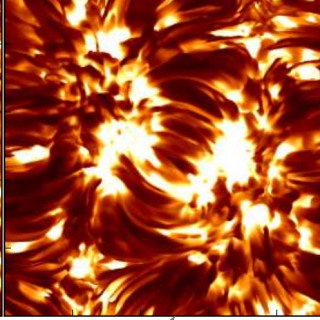Bibcode
Martínez González, M. J.; Asensio Ramos, A.; Carroll, T. A.; Kopf, M.; Ramírez Vélez, J. C.; Semel, M.
Referencia bibliográfica
Astronomy and Astrophysics, Volume 486, Issue 2, 2008, pp.637-646
Fecha de publicación:
8
2008
Revista
Número de citas
59
Número de citas referidas
46
Descripción
Aims: Our main objective is to develop a denoising strategy to increase
the signal to noise ratio of individual spectral lines of stellar
spectropolarimetric observations. Methods: We use a multivariate
statistics technique called Principal Component Analysis. The
cross-product matrix of the observations is diagonalized to obtain the
eigenvectors in which the original observations can be developed. This
basis is such that the first eigenvectors contain the greatest variance.
Assuming that the noise is uncorrelated a denoising is possible by
reconstructing the data with a truncated basis. We propose a method to
identify the number of eigenvectors for an efficient noise filtering.
Results: Numerical simulations are used to demonstrate that an
important increase of the signal to noise ratio per spectral line is
possible using PCA denoising techniques. It can be also applied for
detection of magnetic fields in stellar atmospheres. We analyze the
relation between PCA and commonly used techniques like line addition and
least-squares deconvolution. Moreover, PCA is very robust and easy to
compute.
Proyectos relacionados

Magnetismo, Polarización y Transferencia Radiativa en Astrofísica
Los campos magnéticos están presentes en todos los plasmas astrofísicos y controlan la mayor parte de la variabilidad que se observa en el Universo a escalas temporales intermedias. Se encuentran en estrellas, a lo largo de todo el diagrama de Hertzsprung-Russell, en galaxias, e incluso quizás en el medio intergaláctico. La polarización de la luz
Ernest
Alsina Ballester